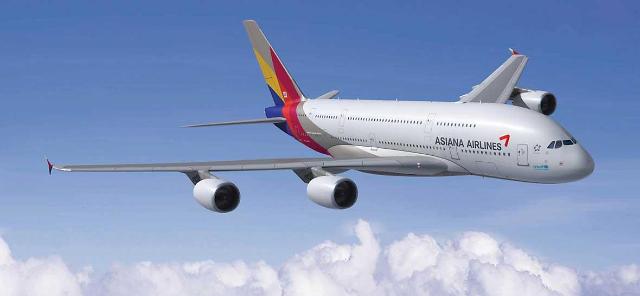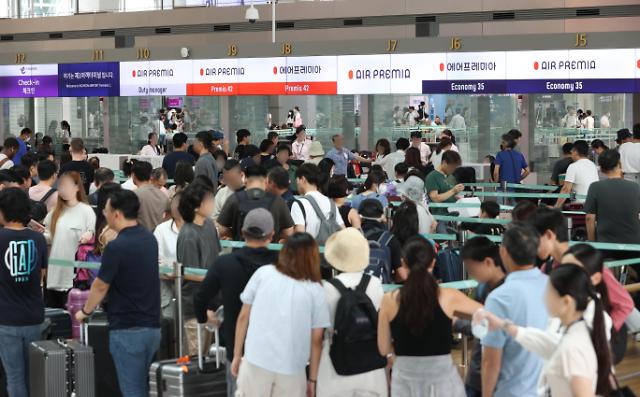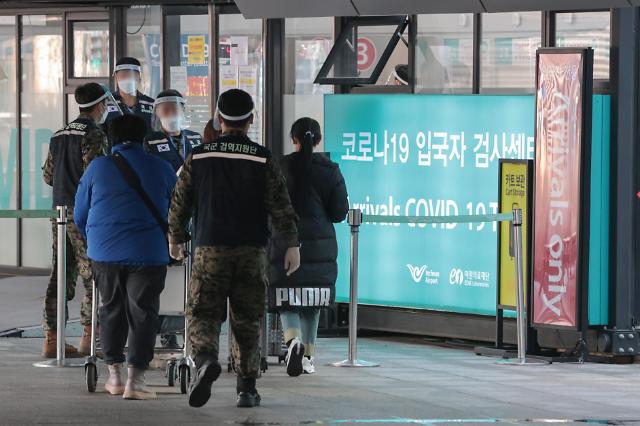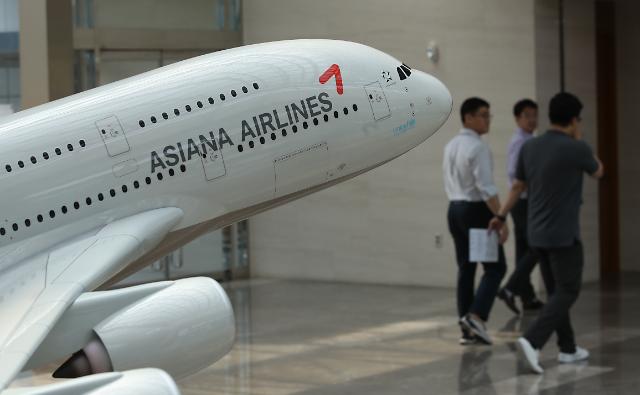
[Courtesy of Asiana Airlines]
The HDC consortium was selected over two other final bidders, Kumho Industrial, the holding company of the Kumho Asiana group, said Tuesday in a regulatory filing. Kumho, saddled with snowballing debts, hopes to complete the sale by the end of this year for a quick turnaround.
HDC Hyundai Development has teamed up with Mirae Asset Daewoo, the brokerage subsidiary of Mirae Asset, a major financial and asset management group, to acquire a 31-percent stake in Asiana and its affiliates including Air Seoul and Air Busan as well as new shares.
HDC Hyundai Development, which was separated from Hyundai Group in 1999, is the parent entity in HDC Group, which has 24 subsidiaries in construction, petrochemicals, retail, property and financial management, healthcare, leisure, musical instrument production, sports and finance, with their total assets estimated at 10.6 trillion won ($9.1 billion) as of May.
HDC Group chairman Chung Mong-gyu, 58, has served as president of the Korea Football Association (KFA) since 2013. He is a cousin of Hyundai auto group chairman Chung Mong-koo.
Aekyung, a mid-sized business group specializing in home, health, and beauty care products for daily use, has formed a consortium with Stone Bridge, a private equity fund, and Korea Investment & Securities. Aekyung controls Jeju Air, a budget carrier based on the southern resort island of Jeju, which has made an aggressive investment to increase the size of its fleet and air routes.
Corporate Governance Improvement (KCGI) has partnered with BankerStreet, a private equity fund, and others. KCGI is the country's first activist private equity fund which holds a 16-percent stake in Hanjin-KAL, the virtual holding company of Hanjin Group which owns South Korea's top flag carrier, Korean Air.
In April, Kumho Industrial offered to sell its airline business under an agreement with Korea Development Bank, a state policy bank. However, big business groups have stayed away due to Asiana's hefty debt and difficulties of the domestic airline industry where competition is getting fierce due to an aggressive business strategy by low-cost carriers.
South Korea used to have two full-service airlines and six low-cost carriers -- Jeju Air, Jin Air, T’way Air, Air Busan, Eastar Jet and Air Seoul. Jeju Air CEO Lee Seok-joo said in March that South Korea's low-cost carrier market would see a drop in profitability due to the entry of three more budget carriers -- Air Premia, Fly Gangwon and Aero K, which were licensed this year to launch services.
The transport ministry has tightened licensing requirements for budget carriers, reflecting concerns about growing competition in South Korea's saturated low-cost carrier market and a price war. Budget carriers transported 29.2 percent of passengers on international routes last year.
Due to currency-related losses and increased jet fuel costs, Asiana swung to a net loss of 10.4 billion won in 2018 from a net profit of 248 billion won a year ago. In the first half of this year, Asiana's net loss widened to 292 billion won from 43 billion won a year earlier. Kumho Asiana's founder Park Sam-koo has abandoned all executive posts at group units and the group's ruling family has offered shares and private assets as collateral to receive a bailout.




